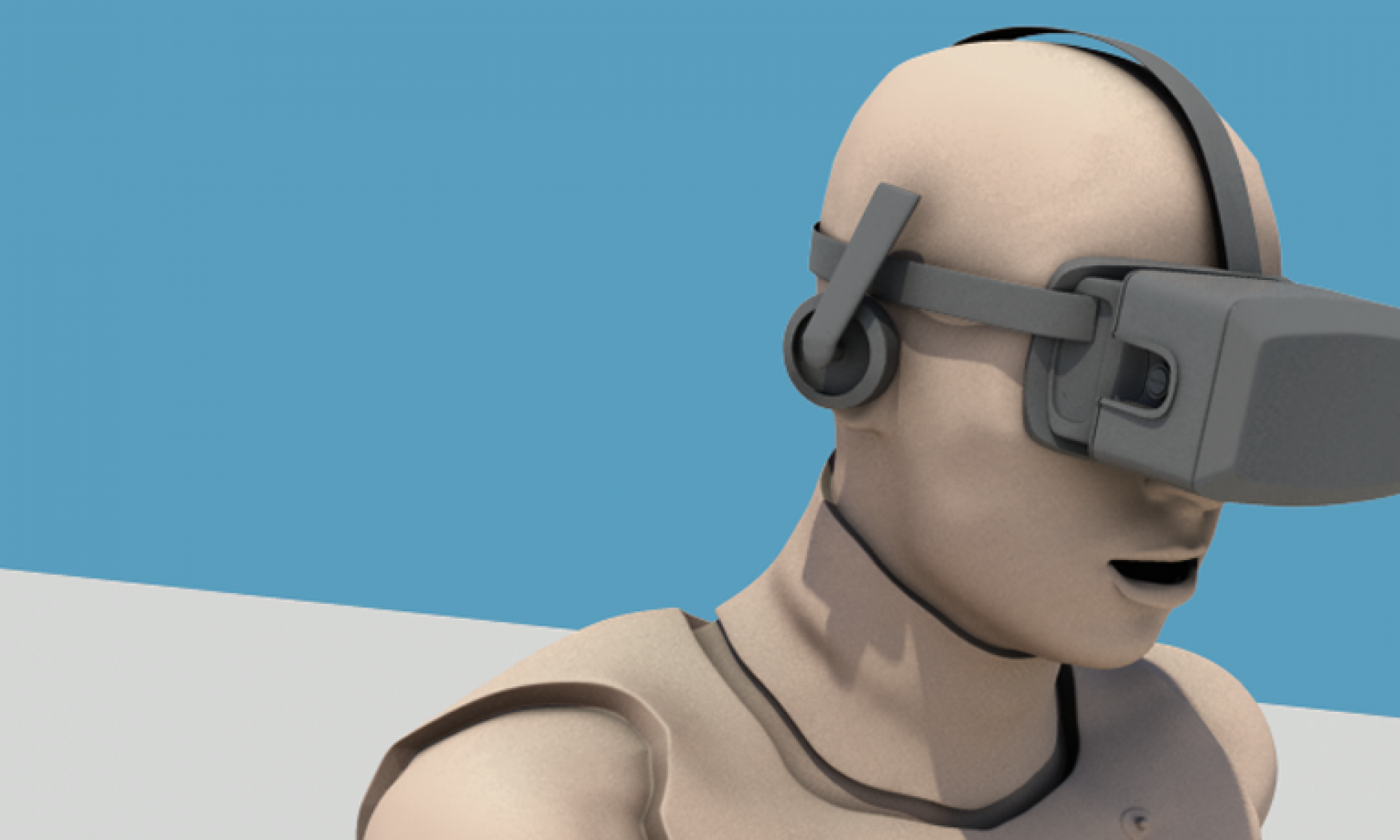Virtual Reality
Virtual Reality or VR uses a computer or computer-aided technology to simulate an environment for the individual. Unlike the older form of interfaces such as TV or mouse control, VR places the user inside an experience. Instead of getting visual feedback from a single direction, the user will receive visual, audio and haptic feedback from multiple directions. The only limitation to a near-real VR experience is the hardware expense as well as the computational powers required for the experience.
Our research works with respect to VR are classified under three broad areas:
- Innovative Haptic feedback in VR
- VR based medical and training simulations
- Computer vision based applications in VR
We also offer a course in our institute called Virtual Reality Engineering (AM5011), in which we learn a brief overview on VR and its various subcategories. It is offered every fall semester.
Consortium for AR/VR Engineering (CAVE).
Haptics
In our definition, haptics is pertaining to the sensing and manipulation using touch between human and machine, machine and machine, or human and human in a virtual, teleoperated, or even real environments.
Branches of Haptics:
Haptics is an interdisciplinary research field. We define haptics as — the study of sensing and manipulation through touch. We use a variety of methods to look for the general principles that we use to explore, represent, and interact with objects. We not only study how humans explore and interact with objects, but also how machines do so.
The Touch Lab at IIT Madras came into existence in June 2005. The goals of our research are to :
- Understand human haptics
- Develop machine haptics
- Enhance human-machine interactions
The interactions can not-only between human and machines in real space, but also in virtual reality and teleoperator systems.
To gain a deeper understanding of human haptics, multidisciplinary investigations involving skin biomechanics, neurophysiology, psychophysics, motor control, and computational models are employed.
The research works in this laboratory with respect to Haptics are classified into three broad areas :
- Human Haptics – to understand human haptics mechanisms
- Machine Haptics, – to develop machines for haptics feedback
- Computer Haptics – to enhance human-machine interactions
Some of the research works in each of this area carried out in our lab are listed here:
Human Haptics:
- Three Radial Artery Pulse Sensor Design for Siddha Based Disease Diagnosis [link]
- Correlation between Two Point Discrimination with other measures of Sensory loss in Diabetic Mellitus Patients [link]
- Comparison of Law of mobility in Upper and Lower Extremities of Diabetic patients [link]
- A Study of Foot and Ankle Joint Mobility among Diabetic Subjects[link]
- Automation of Monitoring Hypnotic Analgesia [link]
Machine Haptics:
- Combat Tactile Jacket [link]
- Hybrid 1DOF Haptic Device [link]
- DC motor damping: A Strategy to increase Passive Stiffness of Haptic Devices [link]
Computer Haptics:
Medical Simulations:
- Haptic Guided Laparoscopic Simulation [link]
- Catheter Insertion Simulator [link]
- Virtual Tissue Cutting [link]
Open PhD Positions
Touchlab is looking for students with an interest in Virtual Reality and Haptics. Students with a Bachelor’s/Master’s degree in electrical/electronics engineering, computer science, mechanical engineering, system and control, mathematics or physics with a strong interest in systems theory are welcome. Interested students should apply by sending an email to me along with a CV.
We are also actively looking for students exceptionally good at embedded programming. Anybody with experience in and having a passion for micro-controller programming, robotics, and practical electronics is welcome to apply to our group by sending an email to me along with a CV.
Demos:
- A Simple Catheter Insertion Simulation [Report]
- Our Hybrid Haptic Device [Paper]
- Tangible Images [Communicated Paper]
- Combat Tactile Jacket [Paper]
- Laparoscopic Simulator with Haptic Guidance. [M.Tech Thesis]
- Voxel Features [PhD Thesis Abstract]
Spin-off Companies
- Merkel Haptic Systems
- Ariano Instruments
- Abhipsta Technologies
- UDYAM Labs LLP
Spin-off Research Foundation:
- IoE-CoE on Virtual Reality and Haptics
- Varma Research Foundation
- Consortium for AR/VR Engineering Mission in India (CAVE)
Useful Links
Upcoming conference on VR – Link
Keywords:
Virtual Reality, Haptics, Medical Simulation for Training, Immersion, Presence, HMD, Interactive VR, Head Tracking, AR, XR, Mixed Reality, VR Engineering.


